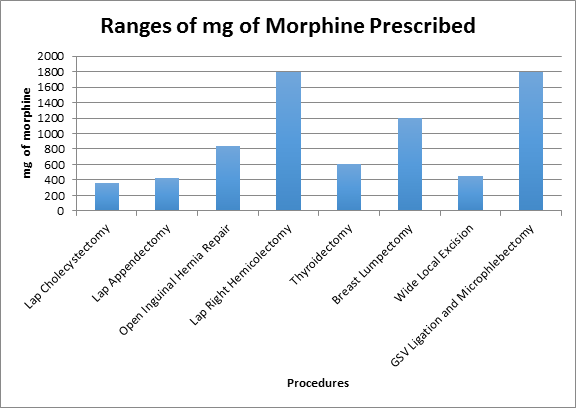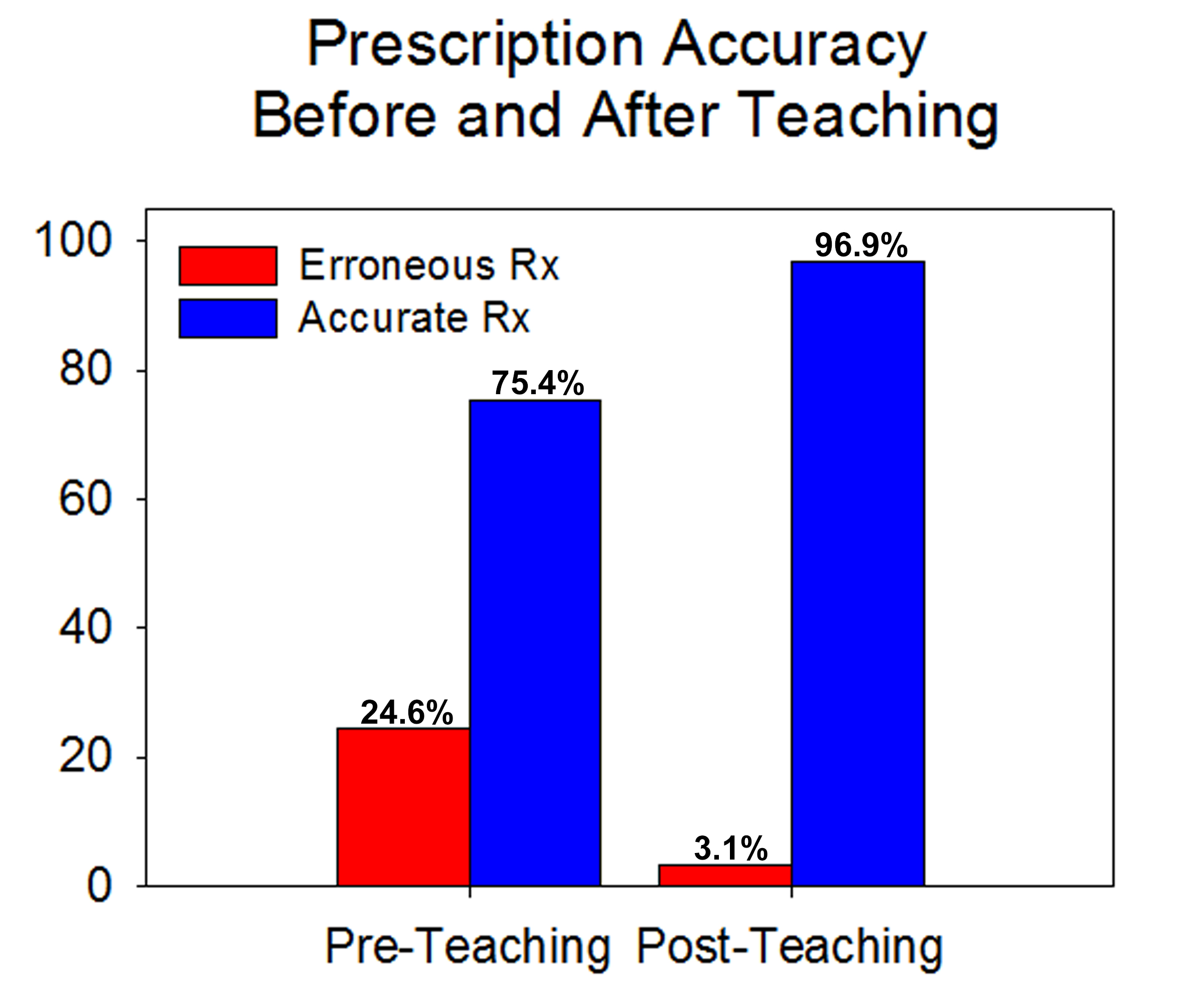Presenting Author:
Michael Nooromid, M.D.
Principal Investigator:
Jonah Stulberg, M.D.
Department:
Surgery
Keywords:
Opioids, Prescription, Pain
Location:
Third Floor, Feinberg Pavilion, Northwestern Memorial Hospital
E28 - Education
Variation In Mock Narcotic Prescriptions Among Surgical House Staff
Introduction: Narcotic abuse is a national health problem that has garnered increasing awareness from healthcare providers culminating in an appeal written by the U.S. Surgeon General to all physicians this year. However, current guidelines do not have recommendations for post-operative prescriptions despite this being a reliable avenue for opioids. At academic institutions, the surgical house staff write a significant number of prescriptions. We sought to evaluate mock prescriptions in our incoming surgical interns before and after an educational prescription writing session. We hypothesized that there would be variation in milligrams of opioids prescribed, but that the amount of opioids prescribed would decrease after an educational session. Methods: Mock prescription survey with eight common surgical procedures distributed during residency orientation to 30 incoming surgical residents among all surgical departments at a US academic teaching hospital. After six weeks, interns in the department of surgery underwent a narcotic abuse review and prescription writing session with repeat survey. Results: In the orientation survey, 25% of prescriptions were written without a frequency or duration. After the educational session only 3% of prescriptions were written inadequately. Ninety percent of the residents found the prescription session helpful, and 72% of the residents felt they would decrease the amount of opioids they prescribed. The range of opioids prescribed for the eight procedures varied between 360-1800 mgs. However, when compared to the orientation survey, the average amount of opioids prescribed only decreased for one of the eight surgical procedures. Conclusion: In a sample of incoming surgical residents at a US academic teaching hospital an educational session on prescription writing decreased the amount of errors in mock prescriptions and a majority of residents felt it would change prescription practices. However, the range of opioids prescribed for the mock operations was substantial. The variation in prescription practices among house staff requires further review and could be an area of focus for future post-operative prescription guidelines.


